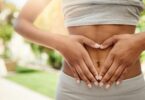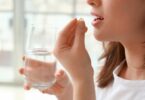Hardly any disease in women’s health leaves patients so disappointed in conventional medicine as endometriosis. As a result, many women are turning to alternative ways to improve their well-being. This includes nutritional changes and targeted use of dietary supplements.
According to studies, 9 out of 10 women with endometriosis suffer from one or more food intolerances. If women eliminate incompatible foods from the diet, the already overactivated immune system has fewer triggers and can “calm down” a bit. A so-called anti-inflammatory diet also helps the overexcited immune system to relax a bit. Targeted supplementation of certain micronutrients can bring further support.
Which nutritional supplements are helpful?
In general, while dietary supplements can provide support from within, they can’t replace a change in eating habits towards a healthier and anti-inflammatory diet.
When selecting suitable dietary supplements, it is advisable to pay attention to quality. The country of manufacture can be an indication. Within the EU, quality standards are usually quite strict, but this is not always the case in other parts of the world. As far as shelf life of active ingredients is concerned, I recommend to have a look at the packaging: powders usually have the shortest shelf life. Canned capsules have the second longest shelf life, and blistered capsules typically have the longest shelf life. Quality also is reflected in the outer form of the supplement: does it come in tablets or capsules? Generally speaking, manufacturing capsules requires far less food additives than making pressed tablets. Therefore, I recommend to choose capsules over pills. For those of you who are concerned about taking big capsules: If the capsules are too big to swallow for you, please know that capsules actually consist of 2 halves that you can easily pull apart and then consume the powder within directly.
Supplements for pain relief
Scientific studies in recent years have shown impressively that it is above all endometriosis-related inflammation and increased oxidative stress that lead to pain in endometriosis. Therefore, patients usually benefit from all nutrients that have an anti-inflammatory and antioxidative effect. Omega-3 fatty acids, for example, have been particularly well studied. They contain precursors for the production of anti-inflammatory prostaglandins. Well-known antioxidants such as vitamins C & E also seem to have a beneficial effect. In addition to these anti-inflammatory and antioxidative nutrients, let’s not forget to mention magnesium either. Most people know that when you are stressed, you need more magnesium and a lack of magnesium can lead to muscle cramps. The pain associated with endometriosis is obviously a major stressor, leading many women with endometriosis to have an increased need for magnesium. If they slip into magnesium deficiency as a result, this can lead to increased cramps in the lower abdomen and internal organs, thus exacerbating endometriosis symptoms significantly.
Tackling inflammation
As mentioned above, essential long-chain omega-3 fatty acids are ideal for gently and naturally reducing inflammation from within. They develop their positive effects by serving as precursors for the production of regulatory compounds that dampen inflammatory processes in the body. Certain phytochemicals, such as lycopene from tomatoes or the well-known spice turmeric, have also been well studied for their anti-inflammatory properties.
Slowing progression of endometriosis
Increased oxidative stress not only seems to intensify pain, research also indicates that it promotes progression of endometriosis. Research from Italy shows that particularly strong antioxidants can inhibit the development of endometriosis in many cases. Dr Porpora and colleagues carried out studies using the powerful antioxidant N-acetyl-cysteine (NAC).
Balancing estrogen dominance
When we talk about estrogen dominance, it does not necessarily mean that there is too much estrogen. Often there is rather too much estrogen compared to progesterone. Therefore, vitamin B6, for example, can be helpful. It helps to increase progesterone production and thus counteract excess estrogen.
Vitamin D
A whole series of studies has shown that an insufficient supply of vitamin D is associated with stronger symptoms of endometriosis. Exactly why this is the case is not really clear. However, it is not entirely surprising either, given that new areas in which vitamin D plays an important role in the body are being identified almost every day.
According to the National Nutritional Survey II in Germany, more than 80% of the population do not have an adequate supply of vitamin D. It is therefore advisable to have vitamin D status checked from time to time (especially by end of winter) and to supplement vitamin D if necessary. Some patients also do this preventively during winter and have had very good experience with this procedure.
If you want children
Like any other woman who wants to have children, you should definitely supplement folic acid. The health organizations of most countries recommend at least 400 µg per day. Large studies have found that folic acid significantly reduces the risk of severe childhood malformations. These arise at the very beginning of pregnancy. This is why replenished folic acid stores are important from the moment you want to have children. Good to know: if you have been using the contraceptive pill, you usually have particularly low folic acid stores, because the pill depletes them. It would therefore be ideal if you started taking folic acid supplements about eight weeks before you stopped using contraception.
Another important aspect of endometriosis is oocyte quality. It suffers quite a bit from the constant inflammation and oxidative stress. Experts recommend antioxidant support to protect the sensitive ovum.
Product tip: You can find all of the above mentioned components in the advanced double action formula of Fertilovit F Endo







